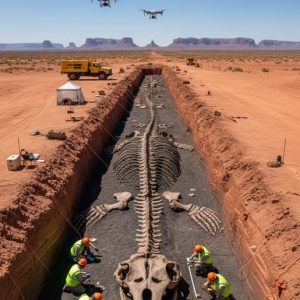Natural science knowledge you may not know
December 7, 2017
The natural world always has interesting things that humans have not yet discovered. The source of natural science knowledge is always rich and diverse that we may not know. Below is a summary of some interesting scientific knowledge that you should not miss.
Natural science knowledge around us
In addition to the general science knowledge you have learned, there are many things around us that we are curious about.
– Have you ever wondered how much water a black cloud can contain? On average, the amount of water in a cloud is equal to the mass of 100 elephants or 2500 donkeys or 33 long-necked dinosaurs.
– According to the general science knowledge you have learned in school, water exists in liquid, solid and gaseous forms. However, there is a time when we can boil water and freeze water at the same time, which is when water is at the junction of the liquid, at that time, water can coexist in 3 forms: solid, liquid and gas.
The source of natural science knowledge is very rich and diverse.
– Trees are the longest-lived living organisms on earth. The 9,550-year-old Spruce in Sweden is the oldest tree ever discovered.
– In 1 year, about 1,000 tons of dust from space falls into the earth’s atmosphere.
– In the summer, the height of the Eiffel Tower will increase by 15cm due to the expansion of metal.
You can take courses to learn more about natural science knowledge on the ketnoigiaoduc online recruitment page .
Interesting scientific facts about animals
There are more than 1 million species of animals that have been discovered and recognized in the world. There are some very familiar species that we still do not fully understand. Let’s take a look at some interesting scientific knowledge related to animals!
– Seahorses do not have stomachs, their intestines also function as stomachs.
– Kangaroos are typical animals of Australia with long jumps of up to 9m. But they cannot jump if their tails do not touch the ground, because the tail is the part that helps the kangaroo maintain balance.
– Sea mussels provide humans with precious pearls. When born, all mussels are initially male, so how do they reproduce? At a certain point in their life cycle, some male mussels decide to “change sex” to become female.
The animal world always contains interesting things.
– Ants are an organized and orderly animal. When an individual in the colony dies, the remaining ant in the colony detects a strange smell and proceeds to “bury” the dead ant by taking the body out of the nest and dumping it in a specific place. The main purpose is not to pollute their living environment, avoiding pathogens that can spread.
– Many people mistakenly think that the hump on the camel’s back contains mainly water, but in fact, the hump of the camel contains fat that provides energy, nutrients and helps them regulate body temperature.
Space science knowledge
In addition to life science knowledge , we should also take the time to learn more about the world around us.
Next, let’s review some of the space science knowledge that scientists have researched over the past time.
– The Earth rotates around its axis at a speed of 1,600 km/h and the speed when revolving around the sun is up to 107,800 km/h. Amazing speed, right?
– Celestial objects in the night sky such as stars and planets only make up a very small part of the universe (only about 5%). So what is the rest? 68% is dark energy and 27% is dark matter. It can be seen how vast the universe is and the knowledge of natural science that has not yet been explored is endless!
There are still mysteries about the universe that have not been solved.
– How old is the universe? The answer has been given by astronomers – 13 billion years old, through the collection and calculation of the material and energy components in the universe.
– The planet closest to the sun is Mercury, but the planet with the highest temperature is Venus, the temperature on this planet is nearly 470 degrees Celsius.
Learn more about natural science to see that our lives still have many new things that have not been discovered. Besides finding information online or through books and newspapers, you can find schools with suitable courses to expand your knowledge!










